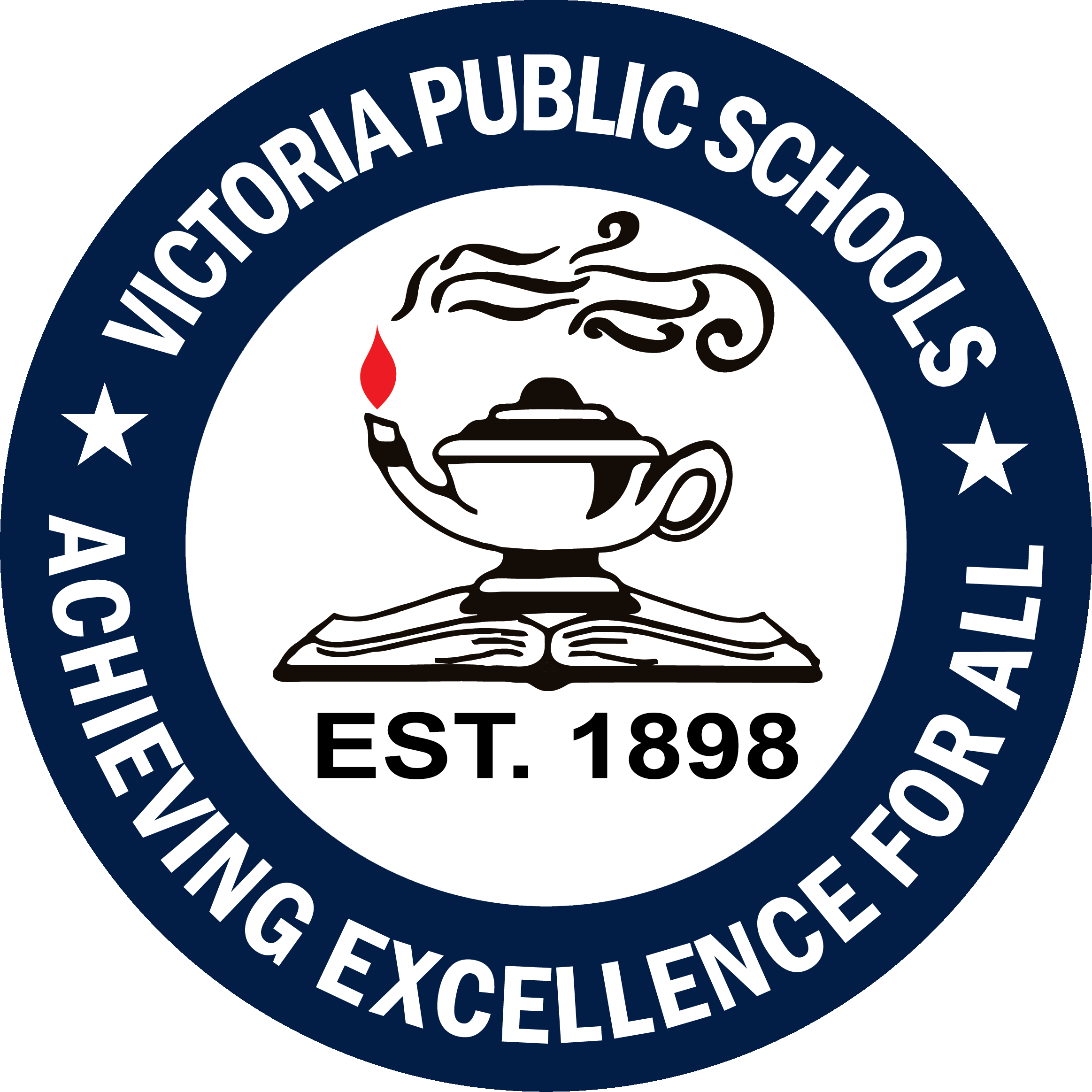Beginning in the 2022-23 school year, Victoria ISD will begin implementing one-to-one technology districtwide. This will be rolled out over the next three school years, with grades three through five receiving Chromebooks in the 2022-23 school year, grades six through eight in 2023-24, and grades nine through 12 in 2024-25.
As of November 2021, Victoria ISD is running a one-to-one technology program at one elementary school, Dudley, and one middle school, Patti Welder, a personalized learning choice school. This semester, one-to-one pilots began at Torres Elementary for fifth graders and Shields Elementary for third graders. Now, one-to-one technology is going districtwide.
Every student across VISD will be assigned a Google Chromebook. A goal of the one-to-one is that every student in grades three through 12 will never be using a Chromebook device that is more than five years old. In addition, once the project has been fully rolled out, it is the plan that each VISD student will be assigned the same Chromebook grades three through seven and again in grades eight through 12.
The District will utilize both the typical one-to-one program approach as well as an on-site one-to-one approach. In a typical one-to-one technology program, an individual school or a school district provides each student with a school or district-owned mobile computing device (i.e. tablet, laptop, or Chromebook). The student keeps this device with them, using it both at home and school. There will be times in which individual teachers and or schools may not have students take the device home based on the curriculum and assignments being worked on, however, the goal is to operate as typical one-to-one programs.
The benefits districtwide from moving to Chromebooks will be endless. Looking at this from a digital learning perspective, students and teachers will be able to work together more efficiently. Having Chromebooks implemented districtwide will enable equitable access to technology and level the learning playing field for all VISD students.
The Technology Department is designing a customized training program to ensure that teachers who have Google/Chromebook experience receive the correct level of training, while those who do not will be able to participate in more initial pieces of training.
With Chromebooks being cloud-based devices, technology resources will be utilized more efficiently due to not having to maintain thousands of Windows-based laptops. This will help throughout standardized testing as well, with lock-down browsers performing better with cloud-based technology. Given the state requirement of all testing being online beginning with the 22-23 school year, this will be a significant improvement for our standardized testing environment.
Teachers and students will also see an expanded opportunity to use a massive library of applications and other resources associated with Google Workspace in addition to web-based systems currently in place such as Schoology. VISD implemented Schoology, a learning management system (LMS) at the beginning of the 21-22 school year.
VISD implemented Schoology, a learning management system (LMS) that allows teachers to manage their classroom, create assignments their students can submit, participate in interactive discussions with students, perform assessments, student collaboration, and the ability for students and parents to see grades in Fall 2021. Schoology is specifically designed to help schools improve student performance while enabling equity and access to every student.
The movement to Chromebooks and Google Workspace, will not replace Schoology as our LMS. Schoology is a robust LMS with features to prepare students for online testing and opportunities to offer professional development to teachers that Google Classroom does not provide
Chromebooks are considered more secure than traditional laptops due to the main storage being on Google servers, so the exposure to VISD resources and servers is much lower. They typically handle Wi-Fi connections better because there is less overhead being utilized on other operating system tasks, so students and teachers won’t experience as much interruption due to loss of connectivity. With Chromebooks having no hard drive, no high-end processor, and no graphics cards, they also experience a better battery life, with many being able to last an entire school day without needing charging.
VISD’s Technology Department has an optional self-insurance program for families worried about the costs of possible accidental damage to devices. This program ensures accidental damage coverage on devices at all times.
All funding for VISD’s one-to-one programs is a combination of federal, state, and local funding. VISD was one of many school districts across the country to receive funding from the Emergency Connectivity Fund from the Federal Communications Commission for approximately 3,000 Google Chromebooks and 4,000 hotspots. Hotspots must be used for students who do not have access to remote connectivity.
Greg Dandio is the director of Technology for VISD.

